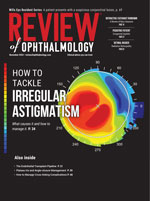By the time this issue hits your desk, we will all (well, maybe half of us) have exercised our most precious right as Americans—and will be celebrating the end of another of our quadrennial political silly seasons. A political campaign makes this clear: Information is power, but misinformation can be a game-changer. Ignorance, the simple absence of knowledge, is relatively easy. False beliefs, based on misinformation, go deep and surrender hard.
In Psychological Science in the Public Interest, a trio of authors from Australia and the United States
just published a comprehensive look at misinformation, how and why it’s so easily spread and, importantly, how remarkably resistant it is to attempts at eradication.1 Among the bad news—we seem to be hard-wired to accept information, even what we should be skeptical of, and once we do, changing our minds demands far more than simply providing a factual counter argument. Even a higher level of education doesn’t make us any more open to reconsidering misinformation.
Our cover story this month tries to shed some light on “myths” in ophthalmology. Some editorial license here; we’re not really talking about Bigfoot-level myths. But as you’ll see starting on page 46, medicine can be prone to continuation of treatment practices and beliefs that bear periodic reexamination, and don’t get it often enough. We don’t suggest that these are necessarily harmful practices, probably all of them will invite debate. That’s part of the deal.
Two concepts that I hope people will question as a results our coverage of myths this month:
• “That’s how I was trained.” I don’t know if anyone’s developed a medical counterpart to Moore’s Law of technology progression to quantify how long it takes for medical training to be rendered outdated, but in a dynamic field like ophthalmology, it’s not very long.
• “It works for me.” That’s a dual-edged sword. As our article shows, one of the characteristics that makes ophthalmology unique is the willingness of its pioneers to try techniques and technologies that “worked for them” but may not have undergone rigorous review. But at some point, even “it works for me” becomes outdated if something comes along that works even better and you’re not aware of it.
The Psychological Science article is well-worth tracking down. Go to
psychologicalscience.org and search for “
misinformation.”
I sure hope that’s not wrong.
 |
1. Lewandowsky S, Ecker U, Seifert C, Schwarz N, Cook J.
Misinformation and Its Correction: Continued Influence and Successful Debiasing. Psychological Science in the Public Interest 2012;13(3) 106–131.



